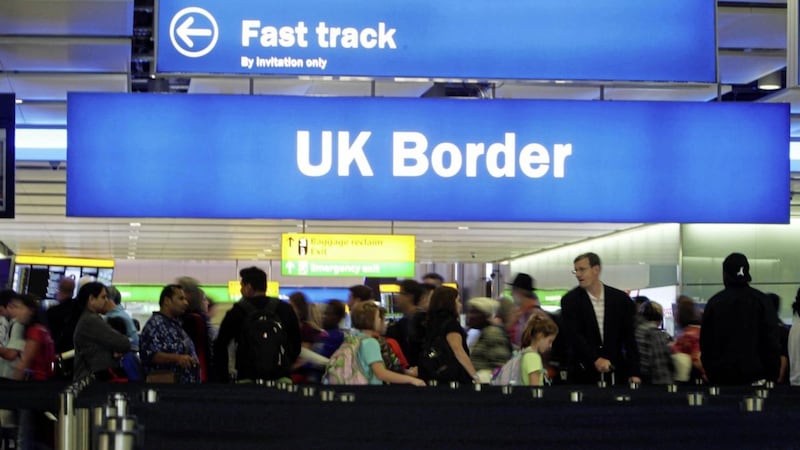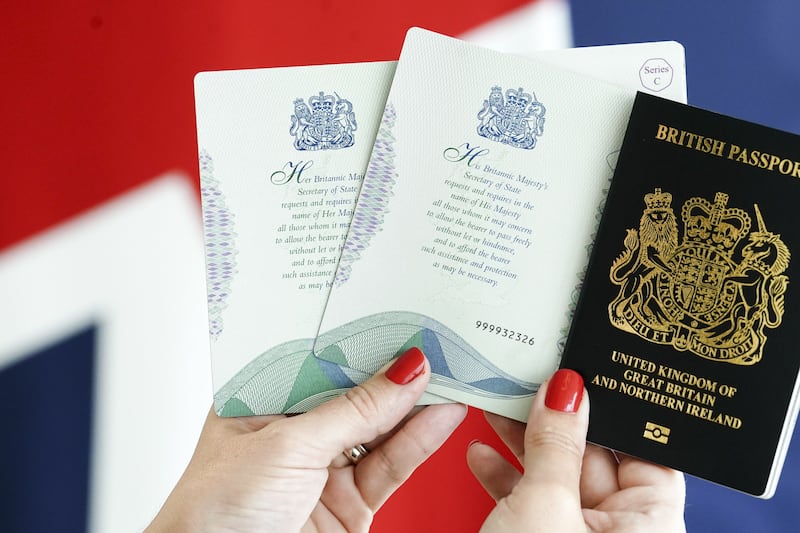ONLY British passport holders are permitted to apply for new Border Force jobs being created in Northern Ireland in preparation for Brexit.
The British government is advertising hundreds of new Border Force roles ahead of the UK leaving the European Union.
The mass recruitment drive has fuelled fears of Brexit leading to stringent border controls impacting on trade and travel north-south and across the Irish Sea.
Among the positions currently being advertised online are 21 posts based in Belfast – 16 Border Force officers and five Border Force assistant officers.
However, people in Northern Ireland who only hold Irish passports cannot apply for the roles.
The SDLP's Claire Hanna, the party's Bexit spokesperson, branded it "exclusionary and chilling" – and called for the British government to "spell out clearly what form of border they anticipate these employees to be guarding".
Border Force is the British government's law enforcement command which carries out immigration and customs checks on people and goods entering the UK.
According to the eligibility criteria for the roles, which have salaries ranging from just over £20,000 to almost £27,000, applicants must hold a full and valid British passport.
The jobs are regarded as 'reserved posts', which under British government civil service rules means "only UK nationals may be employed" and "under no circumstances may any other nationals be employed in reserved posts".
According to civil service guidance, this is because generally reserved posts "due to the sensitive nature of the work, require special allegiance to the Crown".
As a result of the Good Friday Agreement, which had its 20th anniversary earlier this month, people born in Northern Ireland have dual citizenship and can choose to be British citizens, Irish citizens or both.
Around a quarter of passports held in the north are Irish, according to the 2011 census.
Ms Hanna, an SDLP MLA for South Belfast, said: "Having failed to put forward any serious ideas for how to address Brexit, it appears that the UK government are now finally doing some planning but for the one thing they promised to avoid.
"They should spell out clearly what form of border they anticipate these employees to be guarding.
"The apparent bar on Irish passport holders applying is exclusionary and chilling, and likely to be in breach of fair employment guidance.
"In a post-Brexit scenario, what other jobs or services are to be reserved only for, as the Home Office has put it, those with 'special allegiance to the Crown'?"
The UK is set to leave the EU at the end of March next year.
The British and Irish governments and the EU all insist they want to avoid a 'hard border' with physical checkpoints on the island of Ireland, but questions remain over how this can be achieved.
The Home Office has received an extra £395m for Brexit preparations in 2018-19 and expects to have 1,300 additional border staff in place by the end of the transition period in December 2020.
Asked about the Belfast-based jobs, a Home Office spokesman said: "As we prepare to leave the EU, it is vital that we continue to ensure operational resilience at the border.
"The home secretary announced last month that Border Force was launching a nationwide recruitment campaign for officers across many of its port and airport locations.
"This campaign will largely replace individual recruitment rounds to specific roles. It will meet a range of business needs, including meeting the normal staff turnover associated with a large operational business such as Border Force.
"It will also support Border Force to respond flexibly to emerging requirements, including any future requirements as a result of EU exit.








